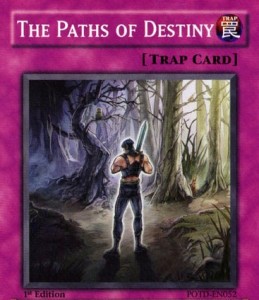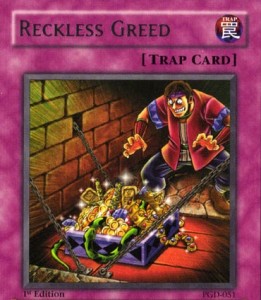Yu-gi-oh!: A beginners guide
Yu-gi-oh! is the top selling trading card game worldwide. To this day it still attracts young and old players alike. Just the other day, a friend of mine asked me if I could give her some tips on how to have a successful entry in to the card game. A sort of “beginners guide”. This resulted in the following article.
Now I’m sure there are plenty of ways on how to have a good start. I probably could have come up with inquiries, market studies and complex graphs. But that would have bored everyone (including myself).
So I decided to simply give a description on how I did it. I thought of every factor that has helped me get to where I am now and narrowed it down to the ones that are still relevant in today’s environment.
That being said, I hope that the following will be a big help to all the aspiring Duelists out there.
.
Your friend is… your friend!
Yu-gi-oh! is a two-player game. It is only natural that when one starts, that it would be easier when one does so with another person. Not only do you have your own partner to train with, you also divide the necessary research work (set releases, rulings, card values). Assuming you and your friend both play a different deck, you could just lend each other cards. On top of that, there are two people buying boosters. This significantly increases the speed at what you would find desired cards. “What if we both look for the same deck?” Even if you were to look for the same deck, the fact remains that you’d both find cards faster than if you were alone. Whatever you don’t need you can both just trade.
Knowledge is power
Having a good understanding of the current meta is essential for any card game. Yu-gi-oh! is no exception. Knowing when a set will be released and what will be in it, can be of significant help when it comes to your finances. After all, what good are the power cards of one set if the future releases render them obsolete? Or, which cards are going to get better with the future releases? Let’s also not forget that there are unfair traders everywhere, so knowing your prices can protect your investment. I remember that I once traded an ultra rare left arm of the forbidden one for a blue eyes white dragon. Little did I know that I was given only ¼th of my cards value.
Set your priorities straight
Be focused. Once you have done your research, you must stick to your plan (in this case your deck-choice). More often than not, you will need to make a choice between a set with the cards you desire and the cards that can get you the most money. It’s also best to set yourself a limit of what you are going to spend. The general rule I applied here was this: the more I know about a set (and the sets after it) the more I would allow myself to spend money on it.
Special editions and tins are good for your wallet. The special edition cards included in those sets are usually good, at the very least trade material. I find that tins or special editions give you more than 30% extra value. Empty tins are perfect to store your commons. Notable special edition cards were: magic cylinder, spore, elemental HERO absolute zero etc…
Greed
Don’t be greedy when it comes to trades. Don’t try to rip other people off. What most people don’t realize is that as long as you are getting more than your card has cost you, you are making profit. So knocking off a few percent, will not only facilitate the deal and save you time (more time for other deals). It also helps build solid trading networks. Remember: a good reputation can go a long way, but so does a bad one.
If you got it, flaunt it!
This one is fairly simple. Show all the cards in your possession that might be of some value. You never know when those cards will come in handy. How often did one of my trades not go through because I didn’t have a shining angel with me. The cards are your resources, so make sure you always have them with you. I also suggest you get yourself a trade binder, this facilitates the exposition of your cards.
Don’t give to charity
Mostly you will find generous people who give you cards. You will probably be inclined to do the same. But let me tell you right now that you shouldn’t. Why you ask? Because you need every card you can get your hands on in the beginning. It sounds selfish but believe me when I say that you probably are receiving just 0.01% of someone’s collection. When you have established a nice and stable collection, then you can allow yourself to give some cards away.
So this concludes my beginners guide, I hope you find it helpful. Of course there a thousand more other ways to have a good start and I would like to know. So if any of you have any other tips, please don’t hesitate to share them bellow in the comment section.
Yu-gi-oh!: A beginners guide,







No Comments